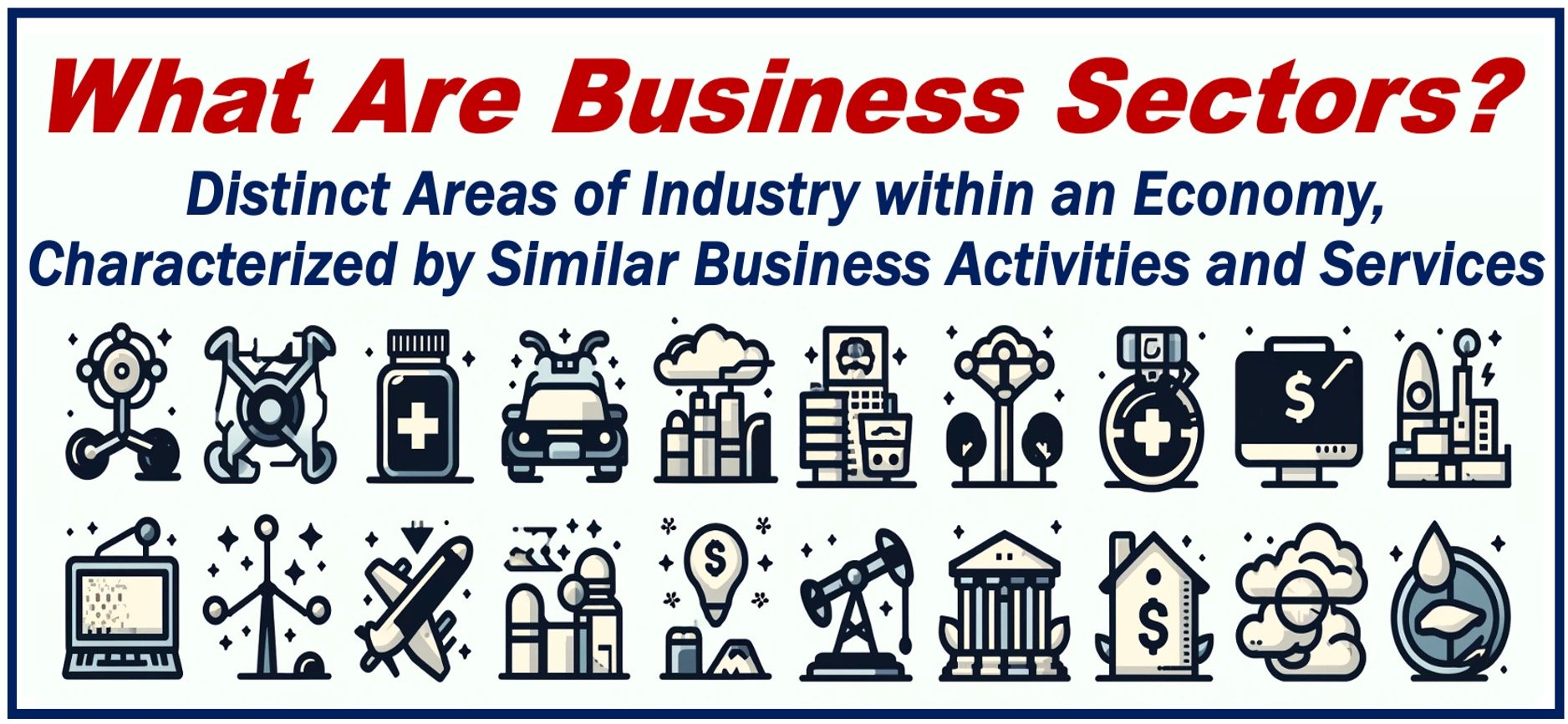A business sector is a part of the economy with businesses that share similar activities, products, or services. It is a broad division of the economy based on the types of goods or services produced, distributed, and/or sold.
Think of the economy as a large pie graph that is divided into several slices. Each slice is a business sector.
Not everybody interprets the term in the same way. For example, some people will group clinics, stethoscope makers, and drug companies into the same business sector, and call it the health sector.
Others, who have a narrower definition, will say that clinics and doctors are in the health sector (or healthcare sector), stethoscope makers in the medical devices sector, and drug companies in the pharmaceutical sector.
Contrasting with the public sector
The business sector may also refer to part of the private sector, which contrasts with the public sector.
All organizations that belong to the state or government are in the public sector. Examples include public education institutions such as schools and universities, government-owned hospitals and healthcare facilities, and law enforcement and military organizations.

The private sector includes companies and industries owned and operated by individuals or private entities, focusing on profit generation and market-driven allocation of resources.
Examples include retail businesses such as supermarkets and clothing stores, service providers such as consulting firms and law offices, and manufacturing companies producing consumer electronics and automobiles.
“A Business Sector” has many companies that produce, stock, or sell similar products or services.
“The Business Sector” is part of The Private Sector, which contrasts with the Public Sector.
Business sectors are useful
Business sectors are a useful way to understand how the economy works, especially different parts of it. Breaking the economy down into sectors helps us:
Analyze trends: Economists, analysts, entrepreneurs, journalists, and other interested parties track how different sectors of the economy are performing. The information they gather and analyze helps them understand the overall health of the economy.
Compare companies: When deciding where to invest their money, investors often compare companies within the same sector. Companies in the same sector face similar challenges and opportunities.
Understand the big picture: Analyzing sectors gives us a way to see the vast web of connections in our economy. How do different sectors depend on one another? What happens when a sector experiences a major shift?
Facilitate specialization and innovation: We can channel resources more effectively by categorizing businesses into sectors. This approach fosters specialization and encourages innovation within each sector. Specialized industries often develop their own unique advancements.
Aid policy formulation: Government agencies and policymakers use sector classification to develop targeted economic policies.
How sectors change
The lines between business sectors can sometimes blur, and they evolve over time. For example, think of some technology companies today. Is Amazon a tech company, a retail company, or something else entirely? This fluidity shows us that the economy is constantly in motion.
Multi-sector businesses
Some companies do business in many different sectors. Berkshire Hathaway Inc., an American conglomerate holding company whose CEO is Warren Buffett, operates in many sectors including insurance, energy, manufacturing, real estate, and retail.
It also holds significant stock positions in major companies across several industries, such as consumer goods, technology, and financial services.
Business sectors in your life
Did you know that business sectors affect you daily? Think about the price of food you buy at your local supermarket, job and career opportunities and prospects in your area, gas (petrol) and transportation prices, and the services you rely on.
The elements of your daily life are all influenced by the complex relationship between business sectors.
